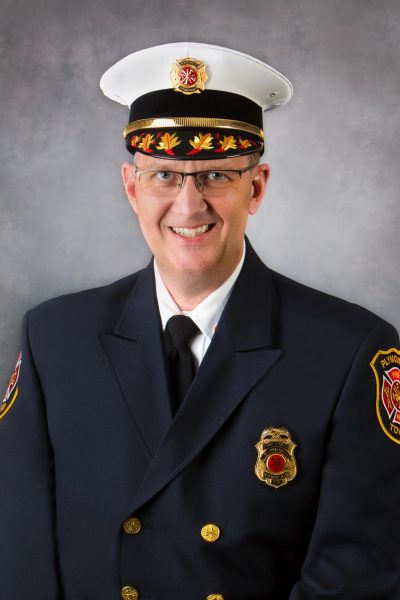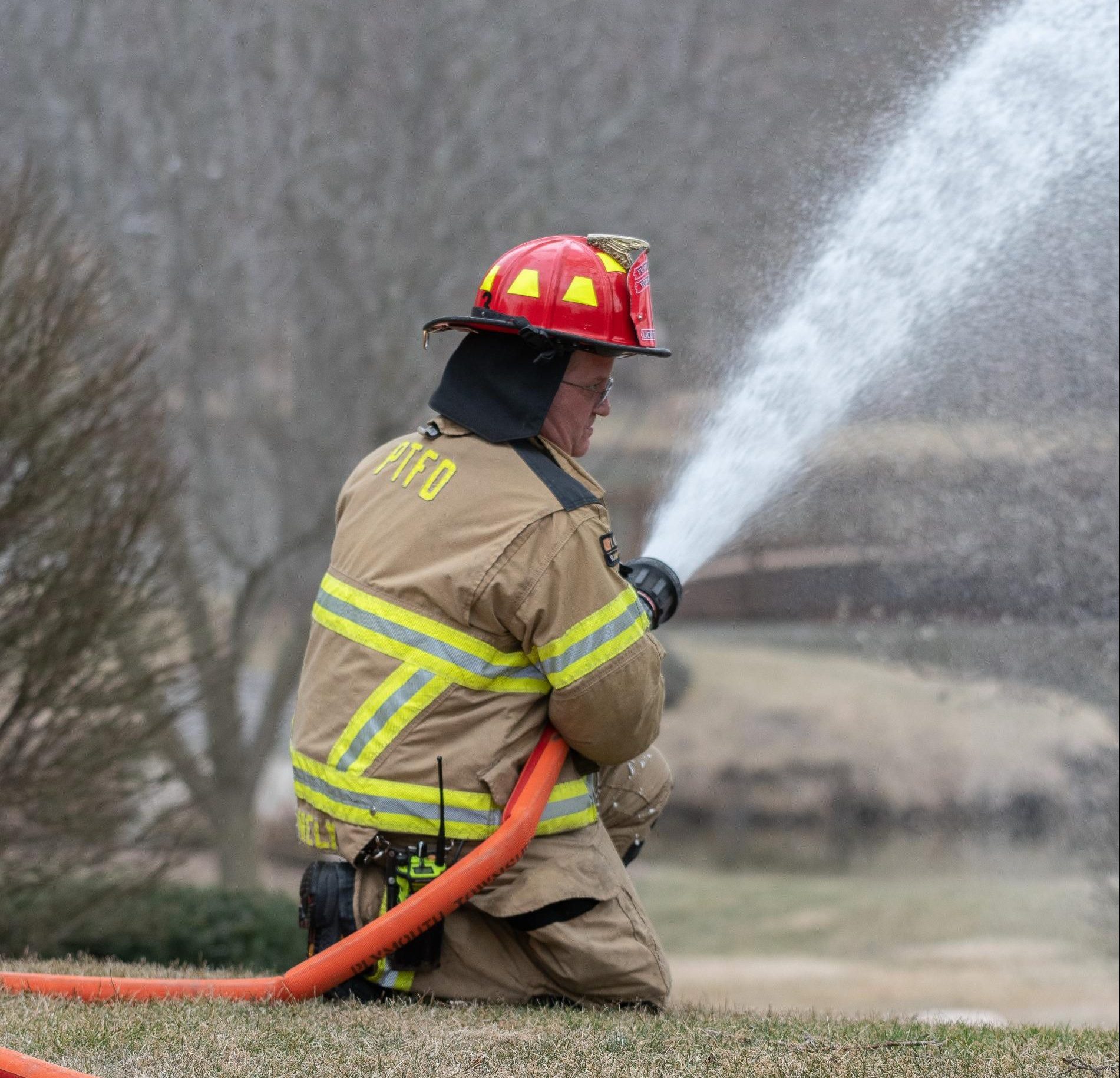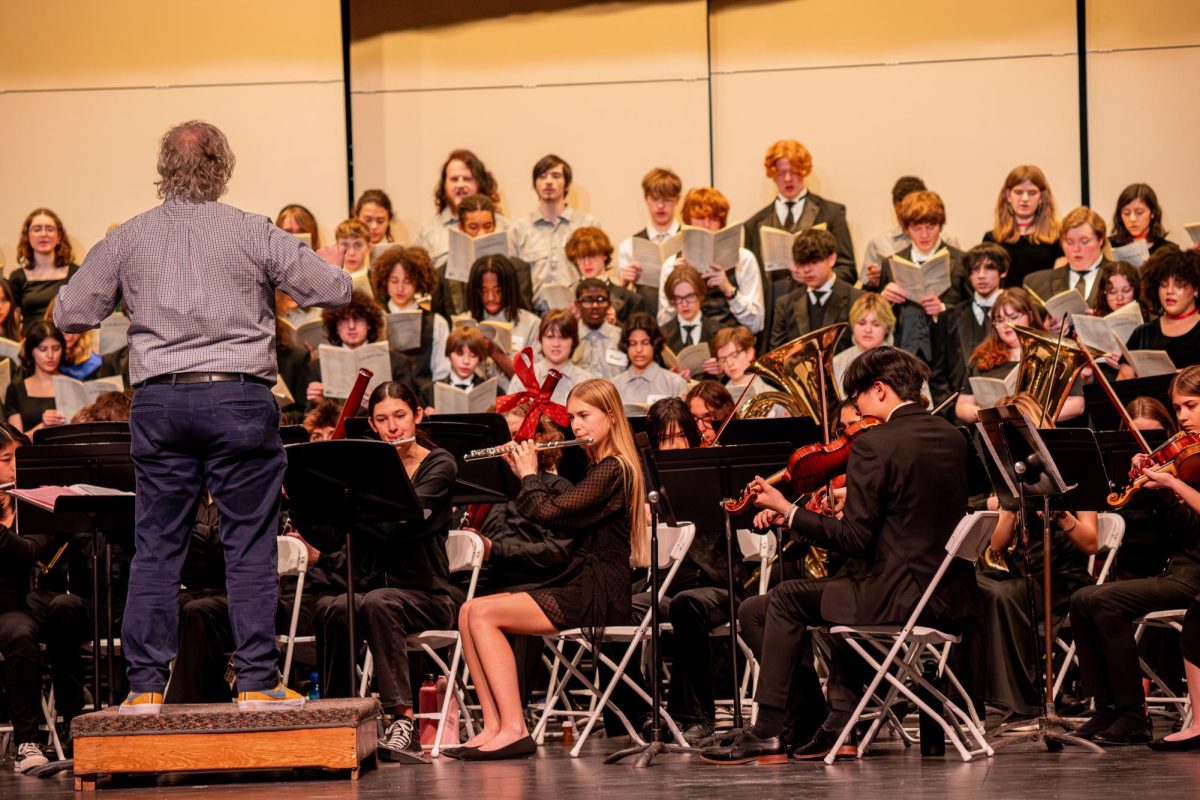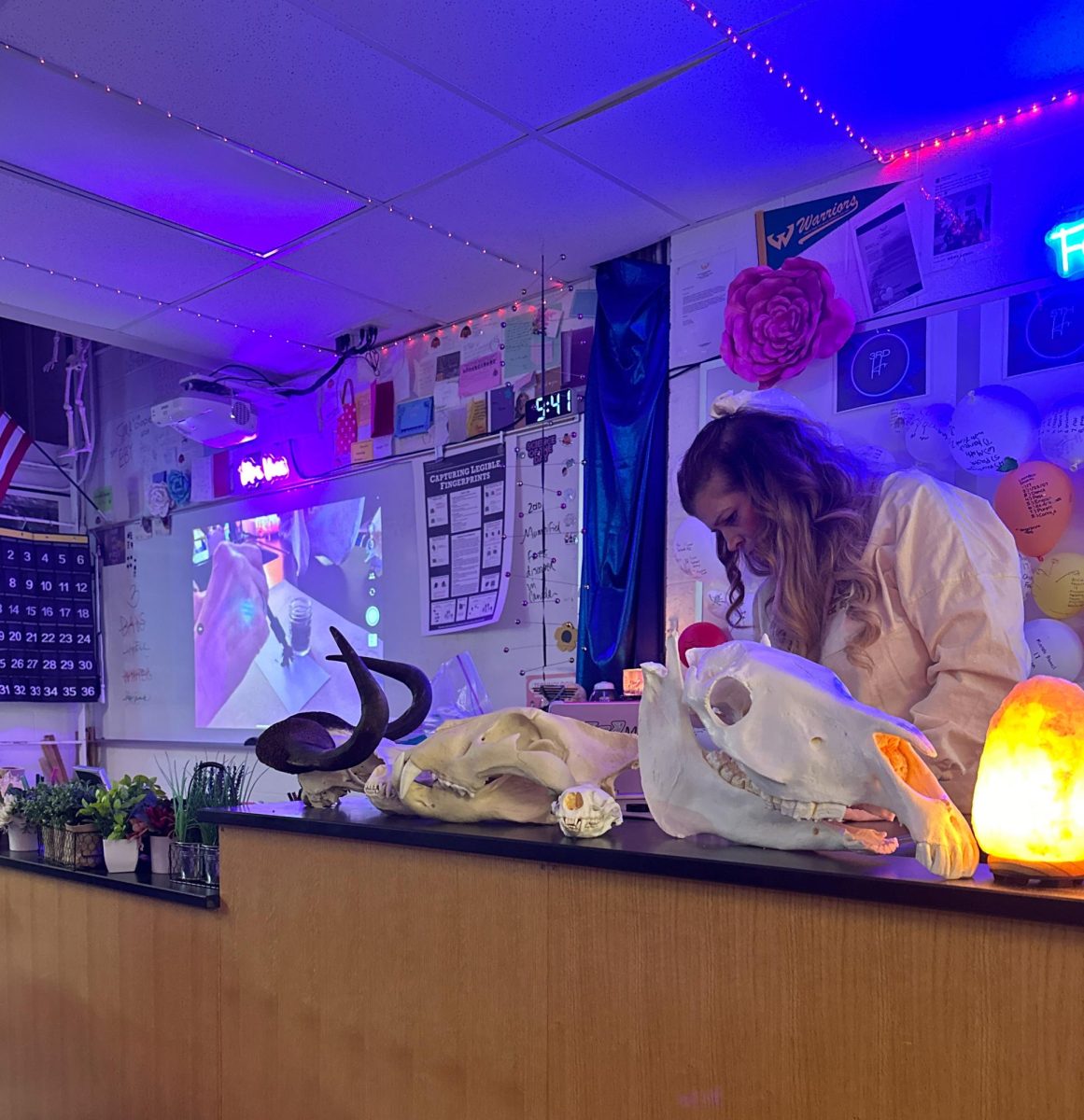The TV blared from the living room and the sound of fire truck sirens filled the house. In front of the TV sat a young boy, enchanted by the images of firefighters, paramedics, and huge fire trucks flashing across the screen. The boy grabbed his toy fire truck and began to run across the room, imagining the flames that his toy truck would soon diminish. Right before he could reach the imaginary fire, the boy ran into the coffee table placed in the living room and broke his nose, marking the first fire truck accident in the career of a future firefighter.
Plymouth Township Fire Chief Patrick Conely has been a part of the emergency services for 33 years. In April 2022, Conely took on the role of fire chief after working at the Plymouth Township Fire Department for 20 years.
“Emergency,” a TV drama about the emergency services which originally aired from 1972-1979, was one source of Conely’s inspiration to become a firefighter and paramedic.
“That [show] really spurred me,” said Conely. “I watched [it] religiously when I was a kid.”
Another source of Conely’s inspiration, his father, motivated him to become a firefighter/paramedic.
“My dad was a firefighter in the 1950s and 60s,” said Conely. “[I’ve] always had an interest [in emergency services].”
After dreaming of being a firefighter and paramedic throughout his childhood, Conely joined the emergency services in 1990.
“I’ve been in the emergency services for 33 years now. I started my career in the EMS [Emergency Medical Services] side,” said Conely. “I’ve held every prehospital license there is in the state of Michigan, from medical responder to paramedic.”

After being in the field for many years, Conely wanted a new challenge.
“Before, I never had any desire to be a fire chief,” said Conely. “It just kind of evolved over time.”
As a fire chief, Conely shared that it is important to be level-headed, organized, and have good computer and people skills.
“I’m not out there fighting fire. I’m not saving lives every day, but I’m dealing with the politicians,” said Conely. “I basically characterize myself as the chief politician in the department.”
Most of the time, Conely said that the fire chief career is similar to an office job.
“I basically sit in an office all day instead of catching a [fire] truck and going out the door,” said Conely. “[However,] I was on a [minimal] fire yesterday, so it was kind of nice to get out of the office for a little bit.”
Conely also mentioned that his job requires him to be flexible.
“I wear a lot of hats,” said Conely. “[I] just metaphorically [put] out fires during the day that might pop up from the [paramedic or firefighting] crews.”
Unlike a typical 9-5 job, firefighters often work in shifts around the clock.
“I’m basically always on call. I’m never off duty,” said Conely, motioning to his multiple phones.
“[This career is ideal] for someone who might not have the revenue to pay for college or who doesn’t want the debt,” said Conely, adding that the only class he paid for was a medical first responder class, which cost $35 as of 1990. The rest of the costs were covered by his employers.
Fire training programs and degrees can take anywhere from a few months to two years to complete, depending on the level of training and program type, but the costs are significantly lower than attending a four-year college.
Students interested in pursuing a career in emergency services can begin training in high school or college. P-CEP is currently partnered with William D. Ford Career-Techincal Center in Westland which offers a myriad of technical programs including fire and EMT training for high school juniors and seniors. P-CEP students attend the training between fourth and sixth hour and are transported by a district bus. The fire and EMT training programs are each year-long commitments, and students have the opportunity to get a certificate and practicum hours after completing each course.
Health Occupations can also provide students with the opportunity to become certified in CPR and first aid, which are crucial to becoming a firefighter and paramedic.
Additional local medical first responder classes and fire training programs include Schoolcraft’s Fire Training program and Oakland’s Fire Training Academy.
“If someone wanted to get a business degree, they would probably be very well set up, as long as they have a background like I had [as a paramedic and firefighter of many years],” said Conely.
According to the Plymouth Township website, “[Firefighters/paramedics] must be certified Michigan Firefighter Level I & II, Hazmat Operations Level certified and must be licensed as a Paramedic by the State of Michigan at time of hire.”
While being an incredibly rewarding career, Conely noted that being a firefighter, paramedic, or anyone in the emergency services requires a significant amount of empathy.
“We go to people on the worst days of their lives,” said Conely. “That’s what the Fire Department does.”
The William D. Ford Career Technical Center is hosting a Fire Up Your Future Open House for students interested in the fire training program on February 6, 2024, from 6 to 8 p.m.
















